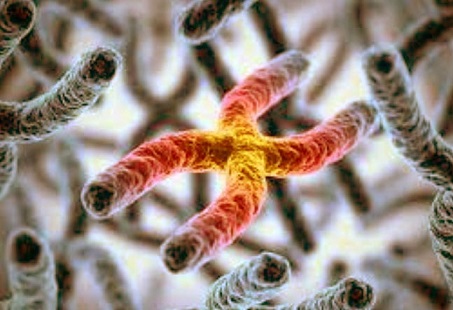New genetic insights show that HLA-G variant linked to post-COVID exercise breathing issues
Nikhil Prasad Fact checked by:Thailand Medical News Team Aug 01, 2024 8 months, 3 weeks, 2 days, 15 hours, 44 minutes ago
COVID-19 News: Understanding the HLA-G Gene and COVID-19
In an intriguing study, researchers have discovered a genetic variant that may play a critical role in how some people recover from severe COVID-19. This
COVID-19 News report focuses on the HLA-G 14-bp variant and its association with exercise-induced oxygen desaturation in post-COVID-19 patients. The study was conducted by scientists from the Instituto Nacional de Enfermedades Respiratorias Ismael Cosio Villegas in Mexico City, Mexico.
 New genetic insights show that HLA-G variant linked to post-COVID exercise breathing issues
What is HLA-G?
New genetic insights show that HLA-G variant linked to post-COVID exercise breathing issues
What is HLA-G?
HLA-G is a gene belonging to the nonclassical HLA-I genes, which are initially known for their role in maternal-fetal tolerance. This gene also has anti-inflammatory properties and modulates the immune response. During the COVID-19 pandemic, researchers found that higher plasma levels of the soluble form of HLA-G (sHLA-G) were present in patients with COVID-19 compared to uninfected individuals. These levels increased in severe cases but decreased in critical cases. The 14-bp insertion/deletion (indel) polymorphism in the HLA-G gene has been linked to the stability of mRNA and the amount of sHLA-G in the plasma. The lowest levels were observed in individuals homozygous for the insertion allele (Ins/Ins).
Study Groups and Methods
The study involved three main groups:
-621 patients with severe COVID-19, defined by symptoms like dyspnea, high respiratory rate, low blood oxygen saturation, or low PaO2/FIO2 ratio.
-520 healthy volunteers recruited after the COVID-19 pandemic.
-101 patients followed for 12 months after severe COVID-19 recovery.
The diagnosis of COVID-19 was confirmed with a positive SARS-CoV-2 PCR test. Researchers evaluated the severity of the disease based on the need for invasive mechanical ventilation (IMV) and in-hospital mortality. Genetic association studies and logistic regression models were used to analyze the data.
Key Findings
Exercise-Induced Oxygen Desaturation
One of the critical findings of the study was the association between the HLA-G 14-bp variant and exercise-induced oxygen desaturation in post-COVID-19 patients. Researchers found that individuals with the deletion (Del)/Ins genotype were less likely to experience a drop in oxygen levels after a 6-minute walking test (6MWT) six months after discharge. In contrast, those with the Del/Del genotype had a higher risk of desaturation, indicating that the HLA-G gene plays a significant role in lung function recovery post-COVID-19.
Statistical Analysis
The study showed that the Del/Del genotype was more common in patients requiring IMV compared to those who did not. However, after adjusting for multiple comparisons, this association was no longer statistically significant. Nonetheless, patients with the Del/Del genotype who survived required more
days of IMV and longer hospital stays compared to those with Del/Ins or Ins/Ins genotypes. These findings suggest that the HLA-G gene might influence the severity and recovery of lung function in COVID-19 patients.
Long-Term Effects and Follow-Up
For the 101 patients followed for a year, frequent follow-ups included spirometry, diffusing capacity tests, and the 6MWT. This group, predominantly male with a median age of 56, had a history of severe COVID-19 and showed persistent lung issues. Tests revealed that those with the Del/Del genotype had consistently lower oxygen saturation levels during follow-ups, highlighting the long-term impact of this genetic variant on lung health.
Clinical and Demographic Data
The study also analyzed various clinical and demographic factors among the different groups. Significant differences were noted in sex, body mass index (BMI), and smoking status between COVID-19 and non-COVID-19 groups. Age and steroid administration varied between patients needing IMV and those who did not, and between survivors and non-survivors. Such differences underscore the complexity of factors influencing COVID-19 severity and recovery.
Implications for Future Research
The findings suggest that the HLA-G 14-bp variant could be a valuable marker for predicting the risk of severe COVID-19 and long-term lung issues in patients. Further research is needed to understand the mechanisms by which this gene influences immune response and lung function. The regulation of HLA-G expression by oxygen levels and hypoxia-inducible factors, as described in previous studies, might provide insights into potential therapeutic targets for improving outcomes in COVID-19 patients.
Limitations of the Study
The study has some limitations. It did not include patients with asymptomatic or moderate COVID-19, focusing only on severe cases. Additionally, the conservative Bonferroni correction used for multiple comparisons may have increased the risk of false negatives, potentially overlooking some significant associations. Therefore, these findings require further validation through replication in similar cohorts or experimental studies.
Conclusion
This study sheds light on the significant role of the HLA-G 14-bp variant in COVID-19 severity and recovery, particularly regarding exercise-induced oxygen desaturation in post-COVID-19 patients. As the first evaluation of this genetic variant in post-COVID-19 conditions, it opens new avenues for understanding and managing the long-term effects of COVID-19.
The study findings were published in the peer-reviewed journal: ERJ Open Research.
https://openres.ersjournals.com/content/10/4/01038-2023
For the latest
COVID-19 News, keep on logging to Thailand Medical News.
Read Also:
https://www.thailandmedical.news/news/genetic-variants-and-covid-19-the-association-of-crp-gene-rs1205-with-disease-severity
https://www.thailandmedical.news/news/covid-19-news-romanian-study-finds-that-hla-b-alleles-b27-and-b50-are-associated-as-risk-factors-for-covid-19-severity
https://www.thailandmedical.news/news/covid-19-news-study-finds-allele-hla-a02-associated-with-lower-risk-of-contracting-covid-19-while-hla-c04-increases-risk-of-severity
